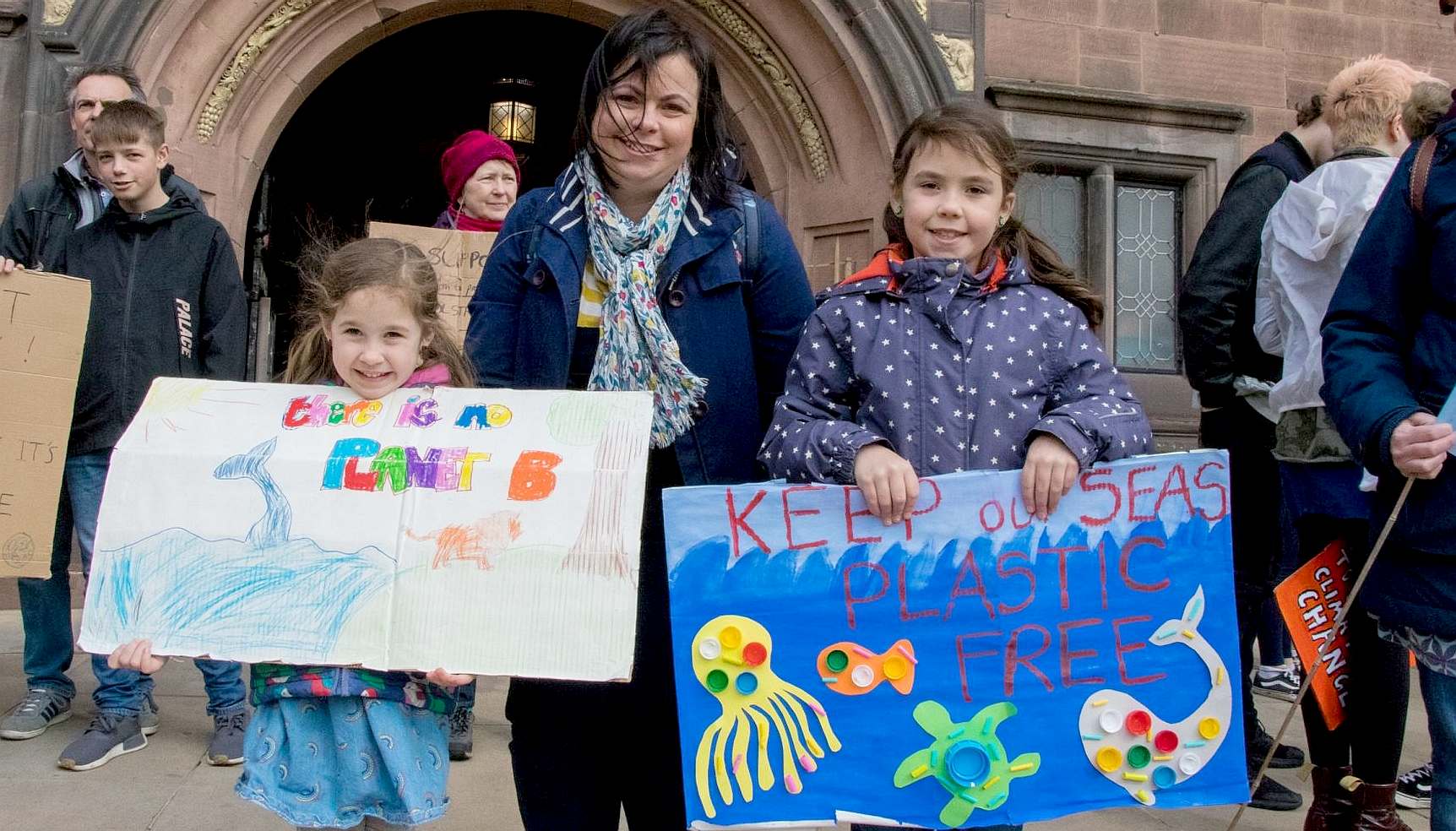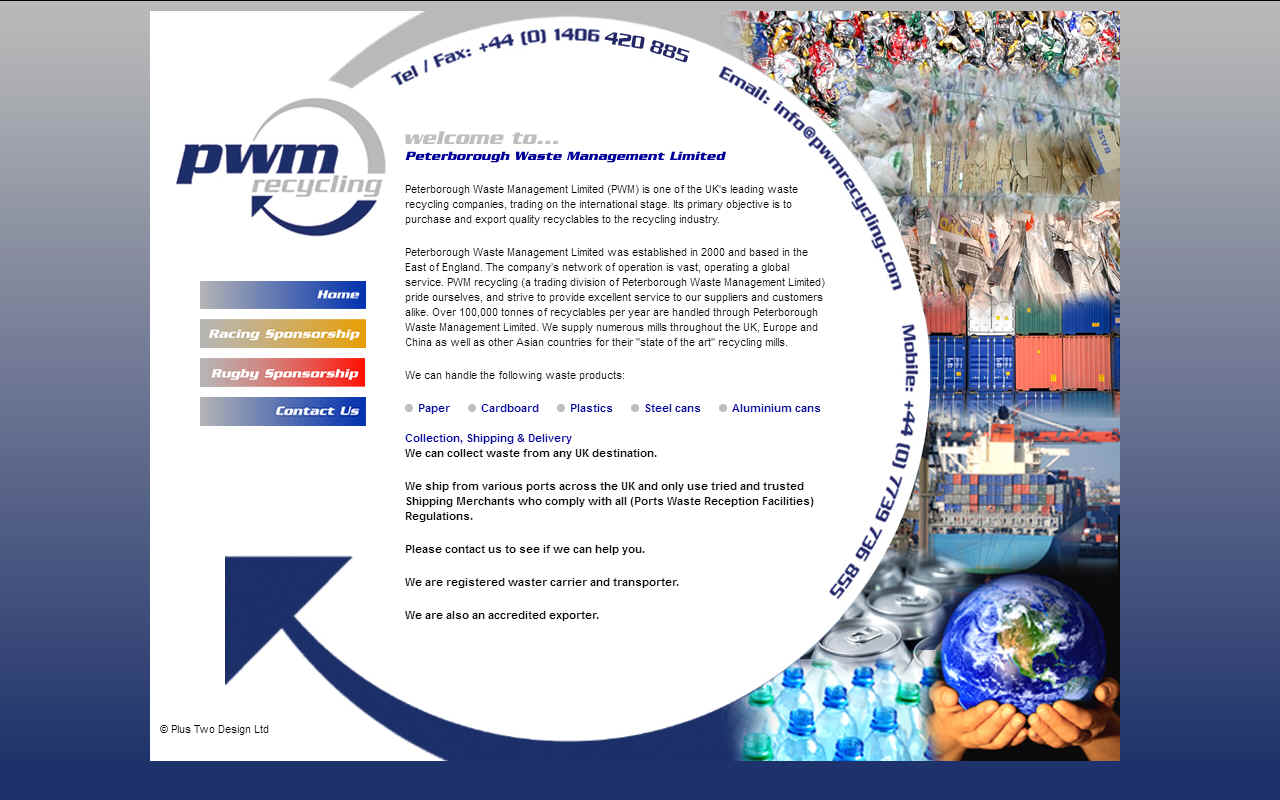|
PWM POOR WASTE MANAGEMENT
PLEASE USE OUR A-Z INDEX TO NAVIGATE THIS SITE |
PROTESTS - One way of drawing attention to a social problem like marine litter is to peacefully demonstrate with signs like this that say it all. By keeping the subject live in the minds of politicians, eventually they will be forced into acting responsibly.
Our society depends on efficient and high quality waste management. Untreated waste is a disease carrier, mostly recognized by the person in the street as emptying of dustbins from our homes, but actually involving industrial and business waste collections and processing as part of a sustainable circular economy.
Increasingly, rivers are coming into the frame, as they pour plastics into our oceans, so putting marine life at risk.
Poor Waste Management (PWM) is prevalent in poorer societies that are not as well developed and cannot afford municipal trucks and recycling plants.
RESOURCE MANAGEMENT
Recycling and waste management should be implemented as a resource management system, not a waste management system.
To clarify, waste management means the best practice for The waste handling, collection, transportation for re- use , recycling (for recyclable materials) and recovery the organic for energy production for fertilizer , finally the useless waste that cannot be re- use , recycled or recover should go to a sanitary landfill, if there is poor waste management , that means poor handling , collection , transportation and dumping and this will results in negative impacts on human health and environment that can be summarized as follows:
1.
Uncollected wastes cause placed on the on the ground, will result in unsanitary conditions specially during the rainy season.
INDIA ACTION EXAMPLE
Over 25 State governments missed the deadline for submitting their action plans on systematic disposal of plastic waste to the Central Pollution Control Board (CPCB). The April 30 deadline set by National Green Tribunal has expired and thus states may have to pay a fine
by way of environmental compensation.
Moreover, NGT ordered that if any state fails to submit an action plan within the deadline it will have to pay the pollution body compensation at the rate of 1 crore per month after May 2019.
We think that such rules and penalties should be applied to any country that does not have an action plan in place to deal with the plastic ocean situation.
FAST FOOD - It's not just fast food, it is our exploitative society that is poisoning the planet, without thought for the consequences. We've been living at artificially low prices at the expense of killing other life on earth.
LINKS & REFERENCE
https://recycle.com/4-tips-waste-mgt-plan/
PLEASE USE OUR A-Z INDEX TO NAVIGATE THIS SITE |
|
ABS - BIOMAGNIFICATION - CANCER - CARRIER BAGS - COTTON BUDS - DDT - FISHING NETS - HEAVY METALS - MARINE LITTER MICROBEADS - MICRO PLASTICS - NYLON - OCEAN GYRES - OCEAN WASTE - PACKAGING - PCBS - PET - PETROLEUM - PLASTIC - PLASTICS POLYCARBONATE - POLYOLEFINS - POLYPROPYLENE - POLYSTYRENE - POLYTHENE - POPS - PVC - SHOES - SINGLE USE - SOUP - STRAWS - WATER
|
|
This website is provided on a free basis as a public information service. copyright © Cleaner Oceans Foundation Ltd (COFL) (Company No: 4674774) 2019. Solar Studios, BN271RF, United Kingdom. COFL is a company without share capital.
|

